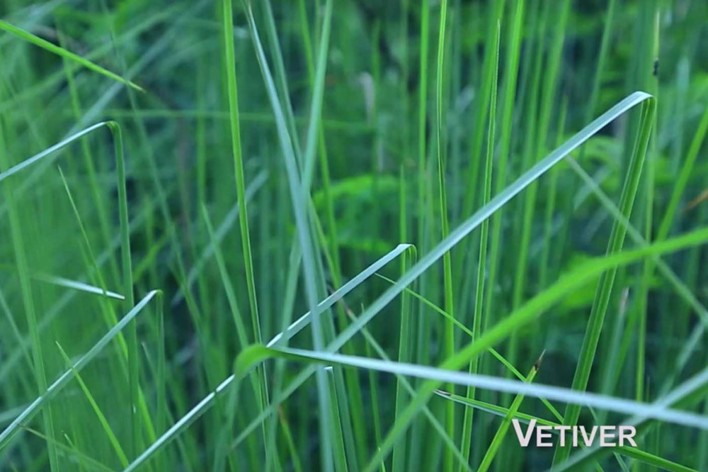
Chrysopogon zizanioides, commonly known as vetiver is a perennial bunchgrass of the Poaceae family, native to India.
Vetiver, a very fast growing grass and until very recently a relatively unknown plant, possesses some unique features of both grasses and trees by having profusely grown, deep penetrating root system that can offer both erosion prevention and control of shallow movement of surfacial earth mass.
Parameters obtained from recent research revealed that vetiver grass roots are very strong with an average tensile strength of 75 Mpa or one-sixth of ultimate strength of mild steel.
The massive root system also increases the shear strength of soil, thereby enhances slope stability appreciably. In addition to its unique morphological characteristics, vetiver is also highly tolerant to adverse growing conditions such as extreme soil pH, temperatures and heavy metal toxicities.
Ingredients/Health Benefits
Contains antiseptic properties to treat acne and sores.
Pest repellant/termite repellant
Healthy for animals
Aromatic flavour and taste
Vetiver oil or khus oil is a complex oil, containing over 100 identified components, such as benzoic acid, furfurol, vetivene etc.
Usage
Used to produce perfumes, creams and soaps
Also used to produce essential oil
Fresh and dried leaves are used as cattle
Used in traditional Indian and Chinese medicine
